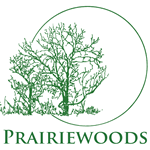 Growing up on 200 acres of land in the hills of eastern Iowa, nature was woven into the fabric of my life. My family was farmers, and conversations about nature and the weather were commonplace: Were the crops too dry? Was it too wet to bale hay? Praying a new calf wouldn’t be born in a snowstorm. As a kid, the importance of these conversations to my family’s survival and ability to earn a living was mostly lost on me. I knew nature as my playground. I could disappear into the woods for hours with my brothers, creating imaginary games, picking ripe berries, splashing in a creek, stretching out underneath a shade tree to devour a book. Nature made me feel alive and peaceful at the same time.
Growing up on 200 acres of land in the hills of eastern Iowa, nature was woven into the fabric of my life. My family was farmers, and conversations about nature and the weather were commonplace: Were the crops too dry? Was it too wet to bale hay? Praying a new calf wouldn’t be born in a snowstorm. As a kid, the importance of these conversations to my family’s survival and ability to earn a living was mostly lost on me. I knew nature as my playground. I could disappear into the woods for hours with my brothers, creating imaginary games, picking ripe berries, splashing in a creek, stretching out underneath a shade tree to devour a book. Nature made me feel alive and peaceful at the same time.
I wish I could say my love of nature continued as I grew. Instead, as I hit my teenage years, I began to detest living in the country. It was so inconvenient! I could never see my friends! Why did we have to live out in the middle of nowhere? (I’m sure you can hear the teenage angst.) I wanted to live in the city—where there was action and things happening! Country life didn’t appeal to me anymore. Looking back, I can see how my disconnection with nature brought disconnection to myself.
As I near 40, I find myself returning to many of my childhood interests. Nature has become a bigger part of my life again. Hiking in the woods, basking in the sunshine on a fall day, tending to my garden. Now, living in the city, I yearn for the quiet of the country and take every opportunity to be back on my parents’ land. It nourishes me just as it did when I was a kid; joy and gratitude bubble up inside me, replenishing me from my busy life. As I walked the familiar hills a few weeks ago, admiring the beautiful autumn leaves, an inner knowing rose up in me: as I’ve come back to nature, I’ve also come back to myself.
—Sarah DuBois


